Fantasia Retro 2025: Reconstructing the Past
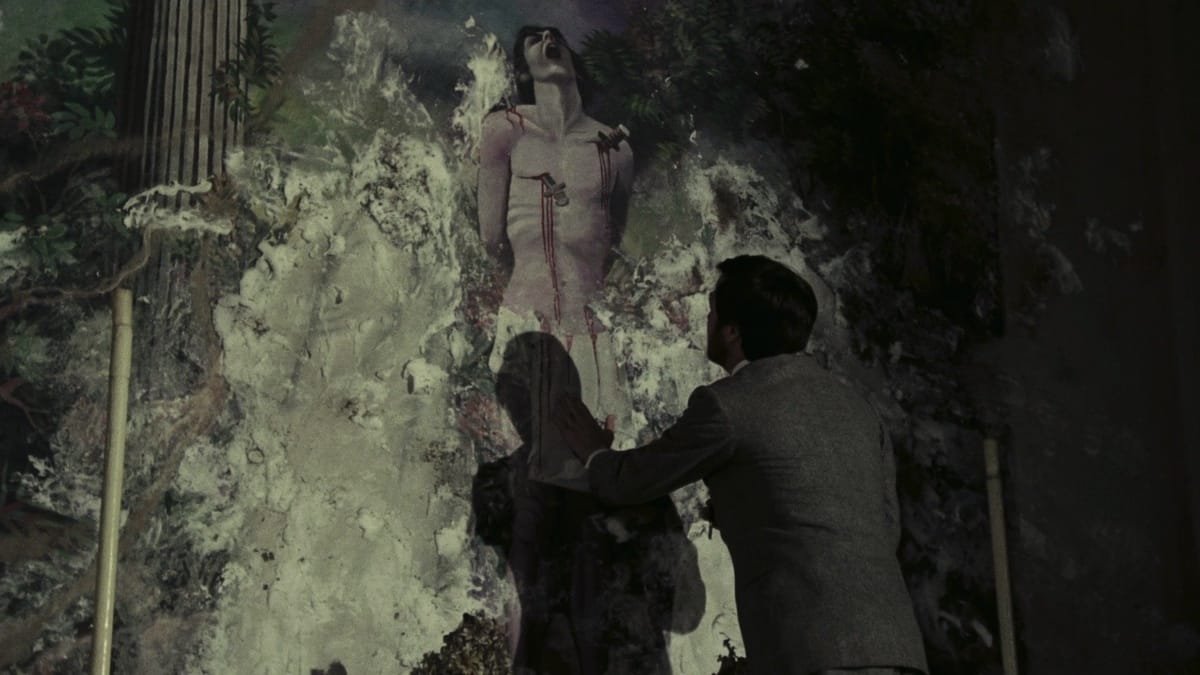
The retrospectives and restorations category of any film festival is always a treat, bringing new life to old favorites or resurfacing hidden gems from decades past. Restoration work is critical to the preservation, archival, and history of cinema, allowing us to ensure culturally important works are preserved in the best possible state so they can continue to be enjoyed and appreciated. Fantasia's Retro slate this year is packed with acclaimed cult cinema, from the long-awaited restoration of John Woo's masterpiece Bullet in the Head to Mamoru Oshii's meditative post-apocalyptic fantasy Angel's Egg. It's also packed with spellbinding discoveries to be made, here encapsulated in three films of wildly different genres from across the globe.
The Battle Wizard (1977)
Dir. Pao Hsueh-li
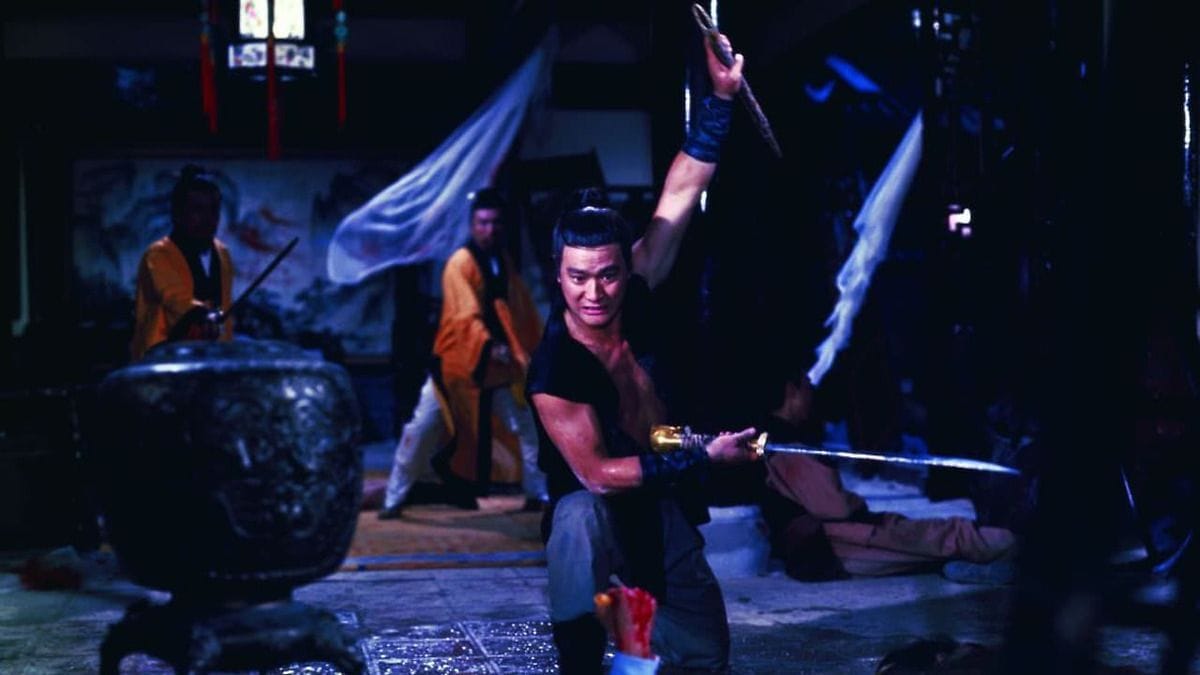
The Shaw Brothers' response to the popularity of Star Wars in '77 is an explosion of vibrant color, flashy fantasy, and wispy wuxia, the studio at full tilt madness and ingenuity. Maintains a madcap blend of narrative beats ripped straight from Lucas' screenplay alongside fantasy and folklore, and nearly impossible to pin down with how wildly it whips between ideas and tone, but there's truly nothing better than the delirious energy of classic Hong Kong cinema. A blood feud between two opposing martial artists erupts when one discovers his wife having an affair with the other – a simple setup that immediately flies into a floaty duel, where the philandering nobleman shoots lasers out of his fingers until he blasts his foe's legs off. His defeated opponent then retreats into a hellish underworld where he bides his time, swearing to return in 20 years to destroy the man and his entire bloodline. When he returns decades later with vengeance in his eyes, he emerges with mechanical chicken legs and a demonic turtle sidekick. For the Shaw Brothers, that's just the beginning, the ground work for a series of escalating events that get only more and more kaleidoscopic and wild, as snakes deities, poisonous frogs, more lasers, and large gorilla men find their way in the middle of the narrative chaos. An essential Hong Kong classic.
Looking For an Angel (1999)
Dir. Akihiro Suzuki
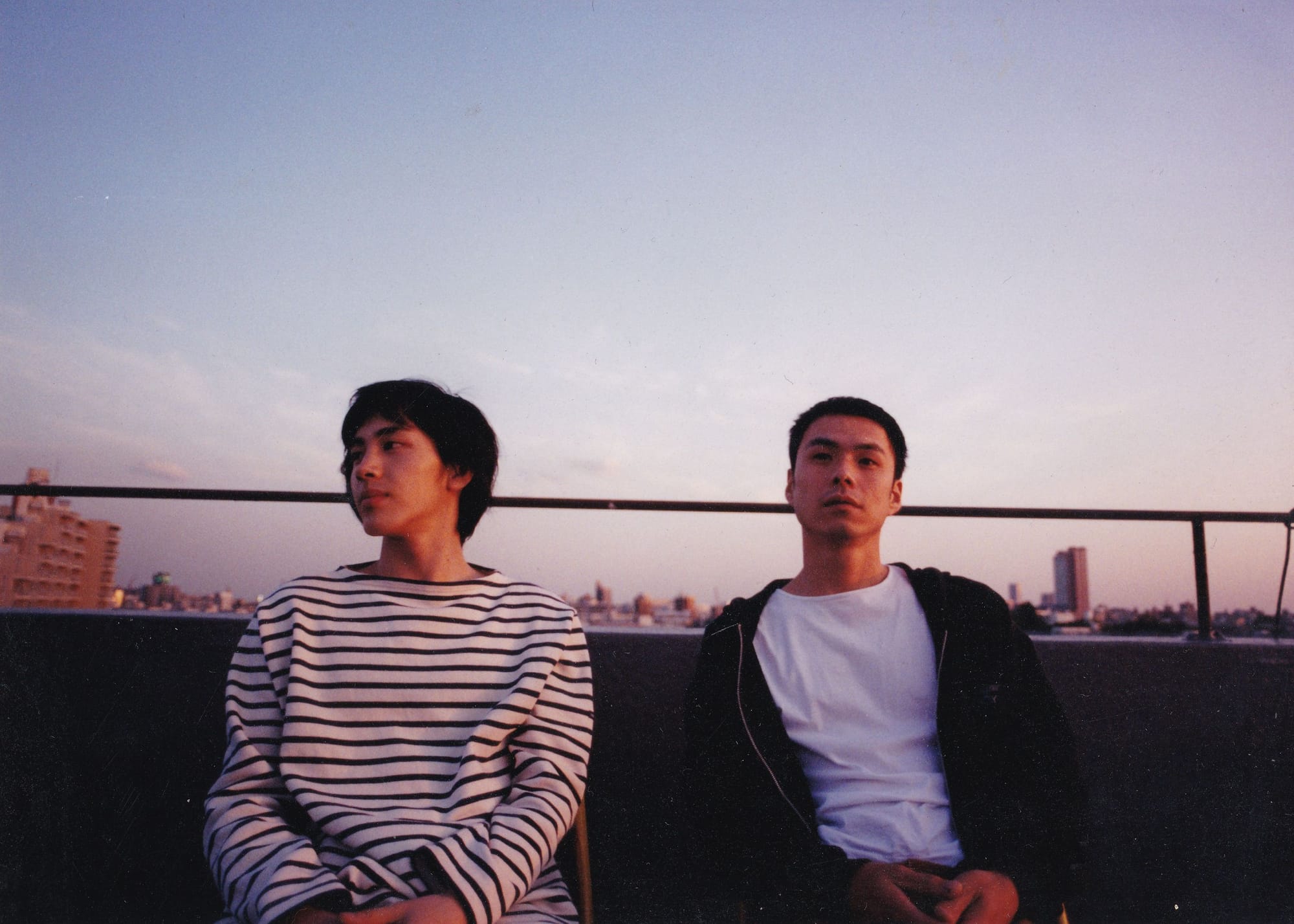
Impressions of identity. Languishes in its melancholic atmosphere, a painful vibe piece about trying to exist through the sorrows of being marginalized and persecuted. The soft, constrictive 16mm photography casts a cerulean haze over the city landscapes it moves through, washing disparate parts together in a woozy blend of memory and anxiety, past and present intertwined alongside the living and the dead. Narratively distant and disaffected, less about controlling a specific narrative arc and more about presenting fragments of memory, interspersed with scanline DV footage that reflects its intimacy. It all lends to how achingly close it feels, the collisions of so many different lives alongside apparitions of reality that even the characters within can't confront. Instead it's all drowned in a sea of emptiness, a void of meaningless sex in anticipation of abuse or reactionary bigoted violence, slipping further away while you plead for the world to be gentle just once.
The House with Laughing Windows (1976)
Dir. Pupi Avati
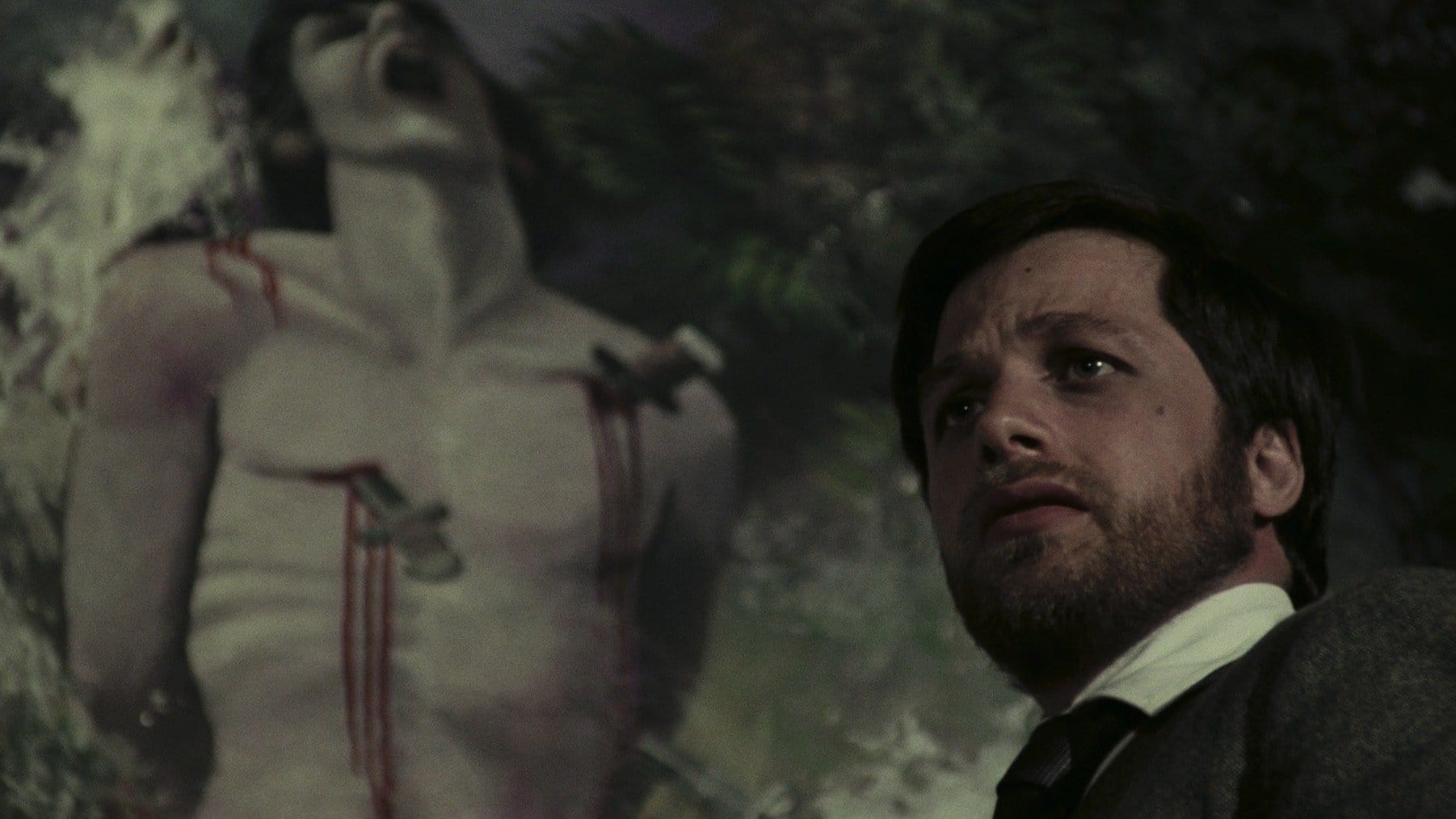
Wields a sense of spatial unease that heralds an almost apocalyptic doom, playing to the opposite of how most gialli use the semiotics of terror. While many of the Italian horror masters played with the fears inherent to claustrophobia, tight spaces soaked with blood and viscera, here Pupi Avati leverages negative space. Empty streets and cavernous rural houses, where fear isn't dredged from a string of violent murders but instead from a torturous drip of the unknown. There's an almost Lovecraftian atmosphere laid thick atop the genre building blocks this stands on, a psychological erosion that has already eaten away at the townsfolk of the desolate Adriatic village. Indicative of a post-war Italy languishing in a sort of corroding purgatory, restoration artist Stefano arrives as if he's entered the endless landscape of death from The Beyond, where every villager is slowly slipping away from reality and he must scramble to keep a grip on his sanity. In a town flooded with suffering, once occupied by fascist forces and still coming to terms with their history of violence and pain, their blood-drenched grief is brought to the surface with every mark Stefano makes repairing the church's fresco. The agony here is subcutaneous, the traumas of the past being excavated and illuminated, phantasms of death slowly circling and layering the destruction of the mind until it explodes in one of the genre's most bizarre and haunting finales, a hopeless ruin of desolation soaked in blood and pain.
Fantasia 2025 takes place from July 26-August 3, 2025. Find out more information about the fest here, and find continued coverage here on Step Printed.

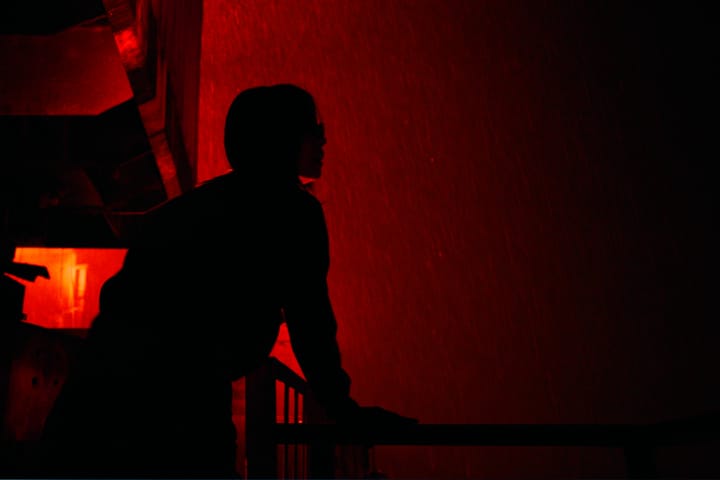
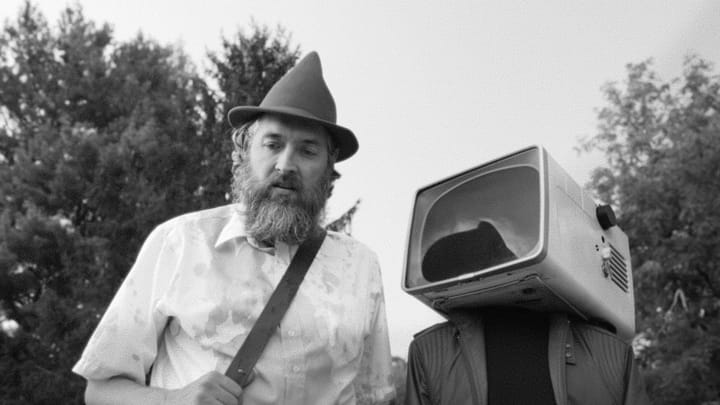
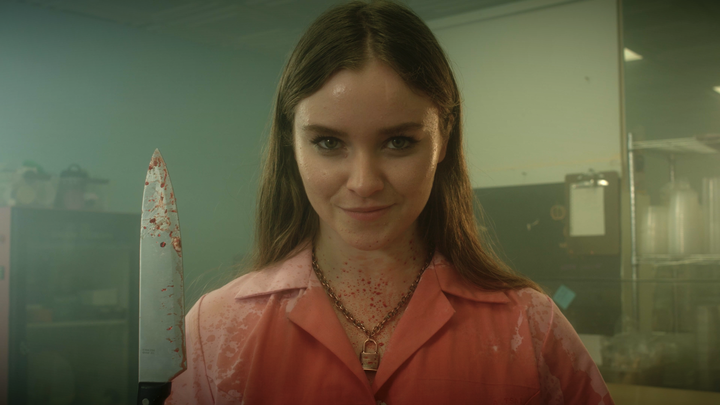
Comments ()